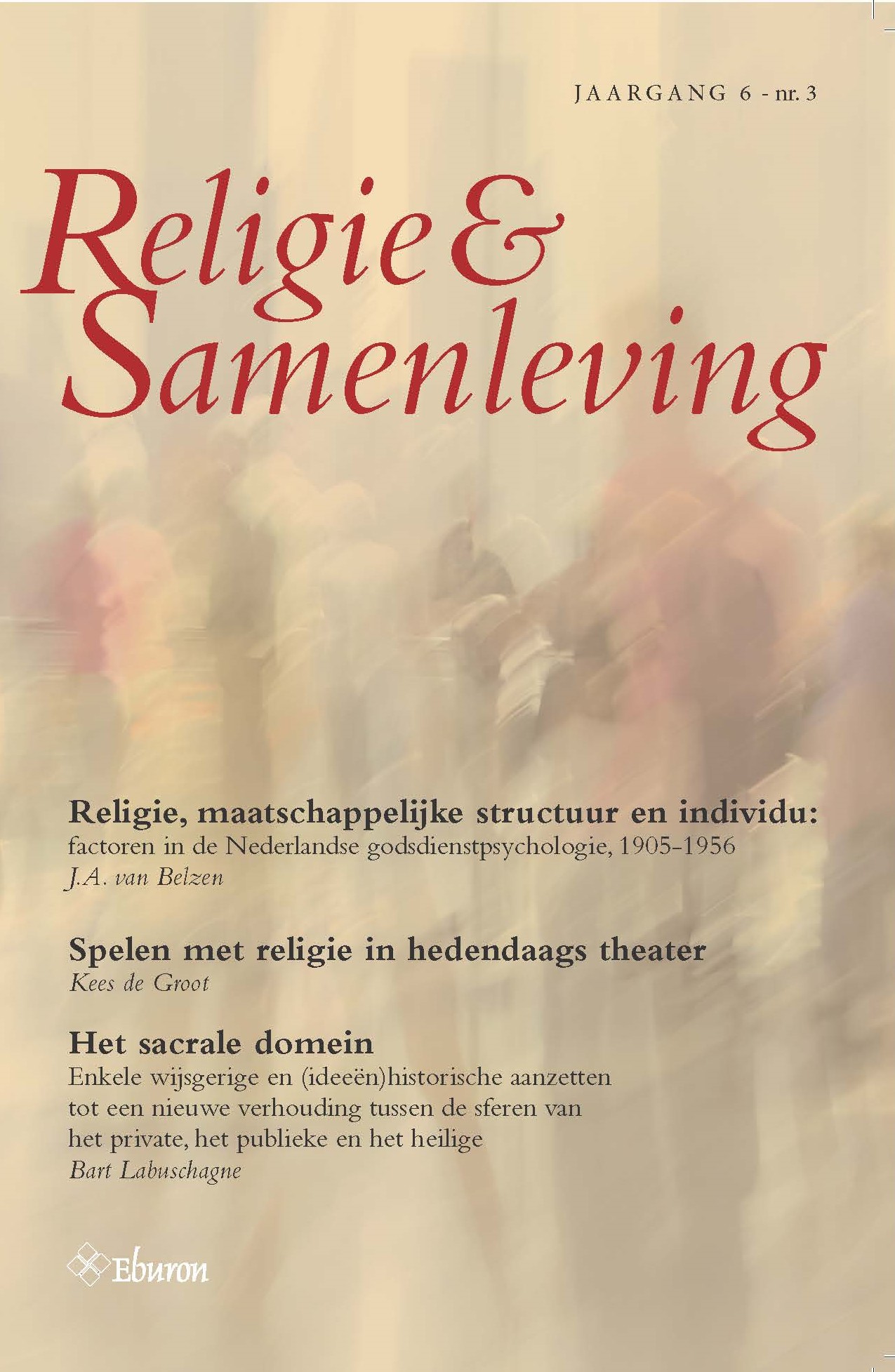Religie, maatschappelijke structuur en individu: factoren in de Nederlandse godsdienstpsychologie, 1905-1956
DOI:
https://doi.org/10.54195/RS.12992Samenvatting
Psychology of religion has a history of a hundred years in the Netherlands now, showing a number of peculiarities: whereas initially and for decades, Dutch scholars made no independent contributions to the development of the subdiscipline, after its first century this small country had the highest number of academic positions assigned to the psychology of religion. History also shows a clear caesura: exactly half a century after the introduction of the psychology of religion to the country the first professorial chair was established for the subject, an also internationally unique fact. This article concentrates on this first, forgotten half century: The few things in the Dutch field of the psychology of religion happened in a context of pillarization, yet without allowing for the formulation of clear relationships per pillar. Factors such as religion, the structure of society and individual personality in each case stood in unique relationships to one another, refuting general propositions on any confessional group and ‘its’ psychology of religion.




